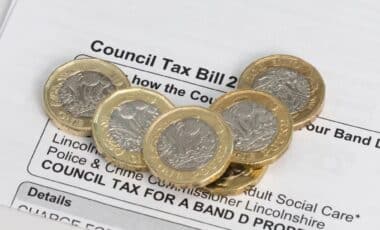More than eight million workers in the UK received tax refunds last year, with HM Revenue & Customs (HMRC) reimbursing a total of £8.3 billion in overpaid taxes during the 2022/2023 tax year, according to newly released data. On average, each individual refund amounted to £943.
Why Do Workers Overpay Taxes?
One of the primary reasons for overpayment is the use of an incorrect tax code. Tax codes are assigned by HMRC and dictate the amount of income tax deducted from an employee’s earnings under the Pay As You Earn (PAYE) system. If an employer or HMRC applies the wrong code, workers may end up paying more tax than they owe.
Common situations that can lead to an incorrect tax code include :
- Changing jobs
- Moving from self-employment to employment
- Holding multiple jobs at the same time
While incorrect tax codes can result in overpayment, they can also cause underpayment, leading to unexpected tax debts owed to HMRC.
Additional Factors Contributing to Tax Overpayment
Beyond tax code errors, other issues can lead to workers paying more than necessary, including:
- Emergency tax codes applied when starting a new job before HMRC has updated records
- Unclaimed tax reliefs, such as work-related expenses or pension contributions
- Changes in working hours or pay structure that are not immediately reflected in tax calculations
How Do You Find Out if You Overpaid?
HMRC reviews tax payments at the end of each tax year on April 5. If a worker has overpaid or underpaid taxes, HMRC typically issues a P800 letter outlining any discrepancies. These letters are usually sent between June and October after the tax year ends.
Individuals who believe they may have overpaid but have not received a P800 letter can check their records via the HMRC online portal or contact HMRC directly.
How Long Does It Take To Receive a Refund?
According to consumer rights expert Martyn James, verifying an overpayment can take up to an hour on the phone with HMRC, and automatic refunds may take years to process. Given these delays, it is advisable for workers to actively monitor their tax situation rather than relying solely on HMRC notifications.
Self-Assessment Tax Refunds Also Reach Billions
According to data obtained through a Freedom of Information (FOI) request by The Sun, around 2.32 million self-assessment taxpayers received tax refunds totaling £5.2 billion during the same period.
Self-assessment is used primarily by:
- Freelancers and self-employed individuals
- People with multiple sources of income
- High earners with additional tax obligations
These individuals must file their own tax returns and may overpay due to errors in estimated payments or tax deductions.
Breakdown of Self-Assessment Tax Refunds
While the overall figure of £5.2 billion is significant, a more detailed breakdown of the refund amounts and common errors leading to overpayment would provide a clearer picture. Many self-employed individuals struggle with tax calculations, and misreporting income or expenses can result in excessive tax payments.
Experts Warn About Refund Claims
Consumer rights expert Martyn James highlighted the complexity of the UK tax system, noting that there is no straightforward way for individuals to check if they have overpaid.
He also cautioned against third-party companies that offer to claim refunds on behalf of taxpayers in exchange for a fee. “These services do not have special access to HMRC and follow the same process that anyone can use for free,” he said.
Avoiding Unnecessary Fees for Tax Refunds
Many private companies advertise services to help workers reclaim overpaid taxes, but these firms do not have direct access to HMRC. Instead, they act as intermediaries, charging high commissions for something taxpayers can do themselves for free.
To check for overpayments without paying unnecessary fees, individuals should:
- Review payslips and tax codes regularly to identify discrepancies
- Use the HMRC online portal to check tax records and request refunds
- Keep receipts for work-related expenses to ensure eligible deductions are claimed
When Will 2023/24 Refund Data Be Available?
HMRC will release figures on overpaid taxes for the 2023/24 tax year in May 2025. The delay in reporting means taxpayers will have to wait over a year to understand how much was overpaid during the most recent tax cycle.
For those concerned about potential overpayments, proactively checking tax records, confirming employment details, and ensuring correct tax codes can help avoid unnecessary delays in receiving refunds.









